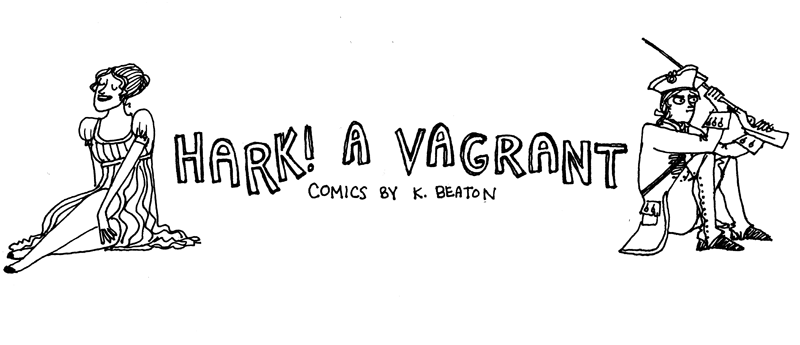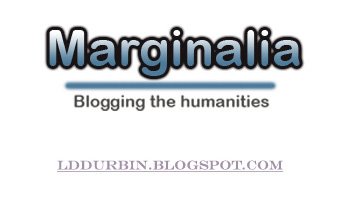 Apologies for the delay - I'm currently working on a funding proposal, and catching up on my Open University "Reading Classical Latin" course, so it's been a busy period for me. Still, without further ado, here's a collection of noteworthy links. I've organised them a little better this time, but expect these updates on a bi-weekly basis in future.
Apologies for the delay - I'm currently working on a funding proposal, and catching up on my Open University "Reading Classical Latin" course, so it's been a busy period for me. Still, without further ado, here's a collection of noteworthy links. I've organised them a little better this time, but expect these updates on a bi-weekly basis in future.
So to begin...
Higher Education
Thomas Benton argues that it's just not worth going to grad school anymore in his article in the Chronicle of Higher Education. He puts this down to "a shrinking percentage of positions in the humanities that offer job security, benefits, and a livable salary", but I can't help but wonder if the same applies to many professions in today's economic climate.
Speaking of the tough economic climate, the New York Times asserts that the Humanities must justify their worth as higher education institutions are faced with painful cuts - implying that the Humanities are somehow less valuable than other disciplines and therefore need to explain why they are still necessary in changing socioeconomic times.
Meanwhile, on this side of the pond the arts and humanities have seen a dramatic decrease in research funding following this week's announcement of how funding will be distributed as a result of the RAE (see the full tables for how much funding was allocated to each discipline here). Although it all seems pretty bleak, Anthony Grafton rightly points out that if we don't start posing the tough but necessary questions now, then "we will see another generation’s relationship [w]ith the university ruined by our refusal to face and discuss facts."
On the brighter side of all this, Geoffrey Rockwell reminds us that these next few years will present opportunities as well as challenges: "Let us build something that celebrates what we do together rather than begging apart", he says, and proposes some credible starting theses. He ends with a rousing call to arms: "Do research not regrets and hold out your hand to those less fortunate as you would want a hand held out to you. Be liberal in your arts and humanity and the liberal arts will thrive"
Here here!
Digital Humanities
As I think about what sort of employment I'd like to take up when my PhD is all over, I do wonder about the possibility of doing work on digital research tools at some (fantastical) higher education institution someplace. Imagine it - to obtain funding to write code to create a programme to be used in the pursuit of humanistic learning, and then write papers on how these tools might be used for the benefit of teachers and researchers. Well, Caveat Lector has a similar vision, but implies that the odds are stacked against those like myself who see this as a credible employment option: "A very, very few digital humanists will run the entire vicious gauntlet and survive in regular humanities departments". At the same time, the University of Lethbridge is playing with the idea of establishing a course which provides "skills, knowledge, and experience a typical undergraduate ought to have if they were to be certified as being basically competent in contemporary web technologies alongside their core domain", indicating that these are necessary skills for graduates, and such skills are nurtured in certain (praiseworthy) institutions.
 Speaking of web technologies, it's worth noting that Zotero 1.5b1 has just been released, and much is already being written about how we can use its new features together with other applications in meaningful ways.
Speaking of web technologies, it's worth noting that Zotero 1.5b1 has just been released, and much is already being written about how we can use its new features together with other applications in meaningful ways.
Finally, in a lengthy but engaging piece posted last year, Kathleen Fitzpatrick proposes a new way forward for academic publishing in the digital age. Fitzpatrick's appropriation of scholarly terms within a digital framework ("scholars must consider how peer review might usefully transform into something more like peer-to-peer review”) reinforces the need for institutions to reassess their outdated modes of academic review and publication, just as the electronic publishing units should seek to adopt "a broader view of textual structures, seeking not just the replacement for print-on-paper but an updating of the codex for a networked environment". Well worth a read.
Website Focus
 The Guardian has recently put together a list of 1000 Novels Everyone Must Read, usefully broken down into categories including "Science fiction & fantasy", "War & travel", "State of the Nation" etc - thanks to bookn3rd for pointing it out. Also sourced via bookn3rd is a remarkable online exhibition called Making Visible Embryos; compiled by the University of Cambridge's Department of History and Philosophy of Science, the site illuminates key questions and concerns by "contextualizing images [of human embryos] that have become iconic or were especially widely distributed in their own time" - weird and wonderful stuff.
The Guardian has recently put together a list of 1000 Novels Everyone Must Read, usefully broken down into categories including "Science fiction & fantasy", "War & travel", "State of the Nation" etc - thanks to bookn3rd for pointing it out. Also sourced via bookn3rd is a remarkable online exhibition called Making Visible Embryos; compiled by the University of Cambridge's Department of History and Philosophy of Science, the site illuminates key questions and concerns by "contextualizing images [of human embryos] that have become iconic or were especially widely distributed in their own time" - weird and wonderful stuff.
And Finally...

Hark! A Vagrant is a webcomic by Katie Moira featuring an array of famous (and indeed infamous) historical figures. Ever wondered how Mary Shelley felt in that remote Swiss villa with Lord Byron and her husband? Find out by clicking the image above!
Last week I finally received my copy of Eluvium's boxset, Life Through Bombardment. Eluvium, a.k.a Matthew Cooper, is an ambient electronic musician who incorporates a variety of instruments into his ethereal palette, and the boxset (containing all of his releases) was well worth the money and the wait. The artwork was drawn by Jeannie Paske, and I strongly urge you to visit her website to see more samples of it. If Elvium's work sounds like something you could get into, then why not try downloading the following track from his latest release, Copia (right-click and save): Prelude For Time Feelers
Read More...
Summary only...











